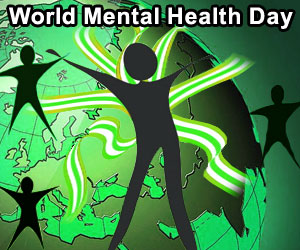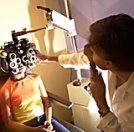2010 World Mental Health Day
 Nobody better understands what it feels like to suffer from mental illness than the ones responsibly caring for the sufferers, usually the family and the health care professionals working in mental institutions. They see, first hand, the debilitating effects of mental disorientation, much less untreatable mental incapacity. Both the physical and social health will not function normally. In most cases, the mental care givers, especially the immediate family, also suffer because of the physical, mental and emotional strain brought by the task. Even if you see the care giver in Barco uniforms or Dickies scrubs, trained and all, the condition of their patients may have intense impact on them.
Nobody better understands what it feels like to suffer from mental illness than the ones responsibly caring for the sufferers, usually the family and the health care professionals working in mental institutions. They see, first hand, the debilitating effects of mental disorientation, much less untreatable mental incapacity. Both the physical and social health will not function normally. In most cases, the mental care givers, especially the immediate family, also suffer because of the physical, mental and emotional strain brought by the task. Even if you see the care giver in Barco uniforms or Dickies scrubs, trained and all, the condition of their patients may have intense impact on them.
This 10th of October 2010, we give the mental disorder sufferers, care givers, and all others facing heavy mental and emotional burdens special attention. World Mental Health Day, which is taking place on the mentioned date, continues to create public awareness about mental health issues by promoting more open discussions on mental disorders. The goal is to continue last year’s theme on integration physical and mental health.
Mental health is intertwined with that of physical as proven over and over by the effect of chronic physical illnesses to the mental health of sufferers. According to World Health Organization, mental health refers to a broad array of activities directly or indirectly related to the mental well-being component included in the WHO’s definition of health: “A state of complete physical, mental and social well-being, and not merely the absence of disease”. It is related to the promotion of well-being, the prevention of mental disorders, and the treatment and rehabilitation of people affected by mental disorders.
In connection with the 2010 World Mental Health Day, WHO launches mhGAP Intervention Guide for mental, neurological, and substance use disorders in non-specialized health settings. It aims to scale up services for mental, neurological, and substance use disorders especially in countries with low and middle income. According to this program, depression, schizophrenia, and epilepsy can be treated even where resources are scarce, thus preventing suicide and possibly leading tens of thousands of sufferers to a normal life. Proper care, psychosocial assistance and medication are the keys.
 World Federation of Mental Health will promote in the international forums the need for inclusion of mental health in the emergent and growing emphasis being given to non-communicable diseases. The WFMH is also developing a program called the Great Push for Mental Health. It is aimed to ensure mental health is given a priority in all countries.
World Federation of Mental Health will promote in the international forums the need for inclusion of mental health in the emergent and growing emphasis being given to non-communicable diseases. The WFMH is also developing a program called the Great Push for Mental Health. It is aimed to ensure mental health is given a priority in all countries.
Significantly, efforts to address this problem in a much wider scale will greatly benefit not just the sufferers of mental disorder, but the family and care givers as well.










